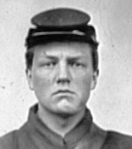3. The Revolution in Northern Politics, 1854-1858
Questions:
1. Why did the Kansas-Nebraska Act cause such a political explosion?
2. Why did the Republicans supersede Whigs and Know-Nothings as the main
opposition party?
3. What was the significance of the Dred Scott decision, and what were
its implications for Democrats and Republicans?
Richard
Carwardine, “The Power of Opinion: Lincoln, the Illinois
Public, and the New Political Order, 1854-58” from Lincoln (London:
Pearson, 2003)
Eric Foner, “Free Labor: Republicans and Northern Society,” from
Free Soil, Free Labor, Free Men: The Ideology of the Republican Party
Before the Civil War (New York: Oxford University Press, 1970)
Kenneth
M. Stampp, “The Concept of a Perpetual Union,” Journal of American
History 65, (1978), pp. 5-33. (JSTOR)
William
E. Gienapp, “The Collapse of the Second Party System,” from
The Origins of the Republican Party, 1852-1856 (New York: Oxford University
Press, 1987).
Michael F. Holt, “Party dynamics and the coming of the Civil War,” from
The Political Crisis of the 1850s (New York: Norton, 1978)
William
E. Gienapp, “Nativism and the Creation of a Republican
Majority in the North Before the Civil War,” Journal of American
History 72 (1985) (JSTOR)
Mark Voss-Hubbard, Beyond Party: Cultures of Antipartisanship in Northern
Politics Before the Civil War (Baltimore: Johns Hopkins University Press,
2002)
Primary sources:
Abraham Lincoln, Eulogy for Henry
Clay, 1851 (extract)
Lincoln, Speech at Peoria, Ill., 16 Oct 1854.
